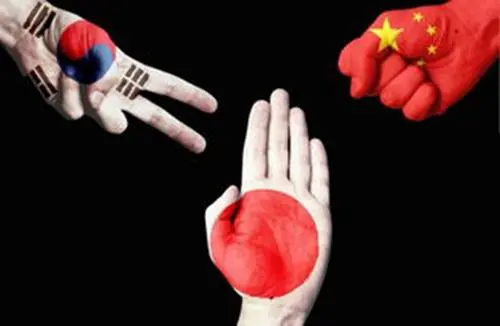The Mid-Autumn Festival is only two days away, marking another important occasion to reunite with family and friends, aside from the Spring Festival. This year, overlapping with the National Day Holiday, high expectations could be even more worthy.
From the increasingly delicate mooncakes to the sweeping holiday discounts of brands and e-commerce, the Chinese society has been suffused with an air of modern diversity and fashionable elements.
File of the moon hanging in the sky during Mid-Autumn Festival /Photo via People Daily
Trails of Mid-Autumn in Chinese poems
By rifling through the ancient poems that have been shine through the Chinese literature for centuries, it is easy to find out some detailed records of how people celebrate the Mid-Autumn Festival since its origin in the Tang Dynasty (618-907).
For the ancient Chinese scholars, especially during the Tang and Song Dynasty (960-1279), writing and chanting in poems are as entertaining and popular as singing songs at the karaoke for the people of the modern age. It was, therefore, an indispensable part for big occasions.
Sweet-scented osmanthus in bloom /Photo via Xinhua
Gifted and learned as the poets were, anything that went into their eyes could also go into their rhymes. There are a handful of poems on Mid-Autumn Festival in the Chinese literature, themed from the moon, the crabs, the sweet-scented osmanthus, the river tides, and their drinks and moods.
Here are a few selected pieces, which could offer a vivid picture of how diversified their poems were.
Admiring the Moon
The Mid-Autumn Festival is marked on the 15th day of the eighth month of the Chinese lunar calendar. It is when the full moon shines on the night sky. It is arguably how the festival was firstly invented – from people’s worshiping of the moon.
From the ancient days to the current, admiring the moon remains an important part of the festival. Therefore, the moon is also the most often eulogized celestial body in the ancient Chinese poems, who used the full moon as a metaphor for a reunion.
It is also a time when travelers and expatriates become homesick. The poem by Zhang Jiuling, a poet from the Tang Dynasty, is an ardent expression of his longing for his beloved one.
Su Shi’s lyric, which is one of the most well-known pieces in China, takes a more universal and philosophic point of view.
Enjoying sweet-scented osmanthus
Flowers are always the best topics for poets, as their blooming could be praised, their withering moaned. Sweet-scented osmanthus is one that earns the most odes during the autumn.
With a sweet fragrance, the Chinese people not only admire and enjoy it but also brew drinks and cook deserts out of the plant. No wonder it has enjoyed such favor from the literature masters for so long time.
Li Qingzhao, one of China’s most famous female poet, even crowned it in one of her pieces.
Eating hairy crabs
Besides the mooncakes, another dish that dominates the Chinese people’s menus during the Mid-Autumn Festival is the hairy crabs. The creature, brandishing claws and wearing hard armor, has once caused an ecological crisis in many areas including Germany and Britain. But it is an autumn delicacy for the Chinese.
Steamed crabs along with a plate of ginger and vinegar are a preferable way of cooking during the autumn.
Eating steamed crabs have been repeatedly depicted in the Chinese literature. In the novel “Dream of the Red Mansion” by Cao Xueqin, one of China’s four great classic novels, has portrayed a famous scenario of eating hairy crabs.
There are also several poems written by the main characters, the accomplished teenage gentleman, and ladies of the aristocratic family of Jia in the novel, after enjoying their feast.
The moon that inspired foreign poets
But it is not only the Chinese poets’ patent to eulogize the beautiful items such as the moon. It has found its places in many great pieces by the poets from around the world.
The following are some of the best examples of moon poetries, with their authors ranging from British literary giant Williams Shakespeare and Percy Bysshe Shelley, to Emily Dickinson from across the Atlantic Ocean.
As for the artists of the modern age, enjoying more diversified art forms, they have injected the ancient topics more vigorous lives. Moon-themed songs, together with the melodies, have attracted more audiences.
“Fly Me to the Moon” and “Moon River” are among a large number of classics. Accompanied by the melodious music, they give a more vivid picture of the bright moonlight that inspires and impressed even more people.
Two days from now, with the table set and crabs served, turning on the music while reading a Mid-Autumn poem, it is not difficult to enjoy a poetic Mid-Autumn Festival.
But which is your favorite poem?
(CGTN)
 简体中文
简体中文




